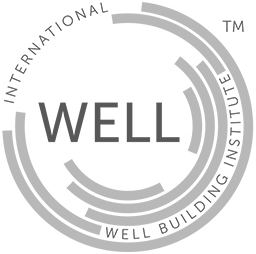The WELL Building Standard


Through years of research, Delos Living has developed the WELL Building Standard -- a set of guidelines for construction and space design aimed at promoting human wellness at work and home.
The WELL Building Standard is included in the Pareto Performance toolkit to help you care for and get the most out of your company's most valuable asset: your employees.
The standard addresses best practices in the following seven areas.
Air
The quality of the air we breathe is critical to our wellbeing. Our health can be adversely affected by many types of airborne contaminants: dust, mold, pet dander, cigarettes, chemicals, ozone, industrial and automobile pollution to name a few.
On the other hand, fresh, clean air can improve work performance by as much as 11%.
Water
Water quality can be affected by many types of natural and man-made contaminants.
As much as 80% of the U.S. is at least mildly dehydrated, adversely impacting their health and productivity.
Light
Proper lighting of spaces for the activities that occur in them enhances productivity by reducing eyestrain and headaches.
Brightness and color of light also play an important role in regulating the circadian rhythm -- the internal clock that synchronizes physiological processes such as sleep, alertness, and digestion.
Comfort
Ergonomic comfort supports accessibility and mobility, and reduces injury.
Acoustic comfort minimizes stress, while a noisy environment can reduce productivity as much as 66%.
Whether too hot or too cold, thermal discomfort can reduce productivity as much as 6%.
Nutrition
Factors such as the availability of healthy vs. unhealthy food can greatly impact the culture of eating in the workplace.
Eating more fruits and vegetables can lower the risk of depression by 27%.
On the other hand, unhealthy eating is linked to a 66% increase in the risk of a variety of emotional and physical conditions that can degrade productivity.
Fitness
Sedentary jobs, modern transportation, and other technological developments have led to a major reduction in physical activity for many people, resulting in greater prevalence of conditions like diabetes and heart disease.
This has lead to the need to adjust work spaces and policies to promote more physical activity.
People who exercise regularly have a 50% lower risk of low productivity.
Mind
Our mental, emotional, and physical wellbeing are closely intertwined. Exercise improves mood and helps regulate the sleep cycle. And stress is considered a major risk factor for many chronic diseases.
Work environments can support a healthy mental state by relieving stress, promoting relaxation and social interaction, supporting proper sleep, and encouraging uplifting social engagement and altruism.
Pareto Performance Can Help You Implement the WELL Building Standard
The WELL Building Standard can be applied both to new construction and existing buildings to enhance employee wellbeing and productivity.
The cost of upgrades is typically minuscule compared to other employee related expenses, and has been shown to yield positive ROI quickly -- often in well under a year.
Discover more about the high ROI of productivity enhancements.
